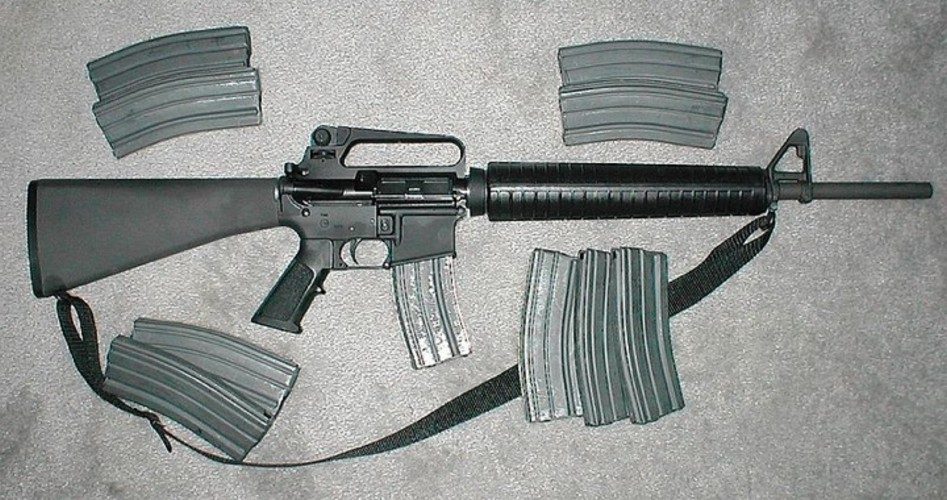
Taking advantage of deadly mass shootings last year, Colorado lawmakers unveiled a package of bills Tuesday that would put owners and manufacturers of assault-style weapons on the chopping block. Democrats in Colorado, a state jolted by some of the fatal shootings, are seeking to make this group legally liable for any crime that involves a specific firearm.
While other states such as New York have pushed bans on military-style guns, Colorado would hold gun makers and sellers accountable for weapon violence if the bills become law. Owners of semi-automatic rifles would face strict liability for civil damages caused by their types of weapons, while state statutes that safeguard manufacturers and dealers from such liability would be abolished. Handguns, shotguns, and bolt-action rifles would be immune from the proposed law.
Specifically, one proposal would restrict the sale and ownership of ammunition magazines capable of holding more than 10 rounds; another proposal seeks to enact more stringent background checks on weapon purchases, including sales between private owners.
Republicans and gun-rights advocates say the new liability standards translate largely into an assault-weapons ban. “By holding the manufacturers liable, they effectively ban the sale,” asserted Dudley Brown, the head of Rocky Mountain Gun Owners. “We really don’t care what happens in this building; how many Gucci-loafered lobbyists come up and talk to politicians. We are going to go into their districts and tell gun owners, ‘This is what politicians are doing to your Second Amendment rights.’”
Brown argued that the bill would be equivalent to holding Corvette liable for accidents caused by speeding. Further, Republican Sen. Greg Brophy likened the bill to “holding Coors responsible for drunk driving.”
“Retailers will be afraid to sell these weapons because they won’t be able to purchase an insurance policy to cover their strict liability — that’s the highest standard,” Brophy explained. “So it effectively bans the sale of all semiautomatic rifles in the state of Colorado.”
Other critics contend that Colorado’s attack on assault weapons amounts to little more than an emotional response to the deadly mass shootings. But besides the constitutional violations regarding such bans, gun-control proponents omit the fact that assault weapons were tied to less than .012 percent of overall deaths in the United States in recent years.
And the 1994 “Assault Weapons Ban” (AWB) had a virtually nonexistent impact on overall violent crime in the country. In fact, according to data presented by criminology professors Jeff Roth and Chris Koper, three years after the ban they could find no “meaningful effect.” Ten years after the ban, according to a colleague of Roth and Koper, “We cannot clearly credit the ban with any of the nation’s recent drop in gun violence.”
“What the current federal gun grabbers fail to take in into account is that concealed carry laws were expanding as the AWB was being implemented,” noted AWR Hawkins at Breitbart.com. “Thus, much of the drop in crime was due not to the fact that grandpa no longer had an AR-15 in his closest but that grandpa was carrying a Glock 19 on his person.”
Responding to intense opposition from Republicans and gun-rights proponents, Colorado Democrats called their initiative a “measured approach,” one that includes universal background checks, a ban on high-capacity magazines, and a more expansive mental health system. “Coloradans have asked us to lead on this issue, not to stand idly by while children are being gunned down in schools and movie theaters,” John Morse, president of the state Senate, said at a news conference.
“As a civilized society, we cannot stand back and wait for another Columbine or another Aurora,” added Speaker Mark Ferrandino, echoing his colleague’s concern over last year’s horrific rise in mass shootings. “This legislation will not bring all gun violence to a screeching halt, but it will reduce gun violence. It will mean fewer devastated families.”
The 1999 Columbine High School shooting in Littleton, Colorado, where two students killed a teacher and 12 students before taking their own lives, was marked as the deadliest public school shooting on record until last December’s harrowing tragedy in Newtown Connecticut, where a gunman shot and killed six adults and 20 first-grade students at Sandy Hook Elementary School. The Sandy Hook massacre also came five months after 12 people were murdered and 58 were injured by a gunman in a movie theater in the Denver suburb of Aurora.
Circled by relatives of victims of the Aurora, Columbine, and Sandy Hook shootings, Morse and Ferrandino further pushed an initiative to require concealed-carry permit holders to go through more strenuous training measures, including in-person training.
Colorado’s Democratic Governor John Hickenlooper acknowledged that he supports universal background checks and expanded mental health restrictions. Beyond those proposals, the governor “is open to a discussion about magazine limits and other ideas designed to keep guns out of the hands of dangerous people,” spokesman Eric Brown noted.
Still, Gov. Hickenlooper is hesitant to fully endorse the other proposals, as the state works to “balance” gun owners’ constitutional rights with the underlying goal of tightened gun laws. “We intend to carefully study the liability legislation proposed by Sen. Morse and appreciate his effort to put a creative idea on the table,” said Brown. “Our office will continue to work with the General Assembly to balance Second Amendment rights with calls for tighter gun laws, while also making sure we strengthen the state’s mental health services and support system.”



